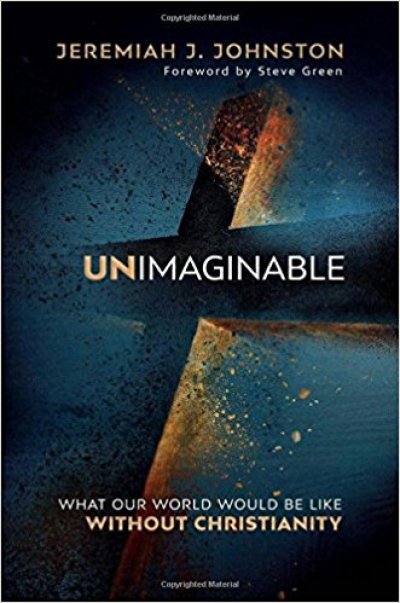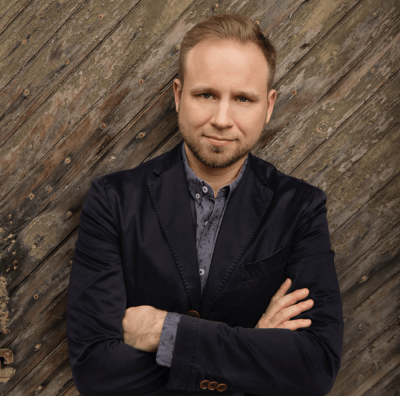Atheists Want a World Without Christianity. Here's How It Would Look

Atheists and Islamic extremists have something in common – they want a world without Christianity. These strange bedfellows believe that the world would be a better place if it was devoid of this religion started by Jesus Christ two millennia ago and counts a third of the world's population as followers.

But they don't have to imagine what a 'grand' world it would be without Christianity, they just have to look at history during the Greco-Roman period and more recently during the 20th century.
"What was the world like before Jesus? Was that a great world?" asks Dr. Jeremiah J. Johnston, president of Christian Thinkers Society, in an interview with ChristianWeek. "There is nothing new about the 'New Atheism'. ... They are going to take us back to a pre-Christian, pagan, racist world of inequality because without God there is no humanity. Without God there are no morals."
Johnston is the author of the new book Unimaginable: What Our World Would Be Like Without Christianity (Bethany House, December 2017), which has an astounding 31 pages of citation notes for 200 pages of reading. The professional researcher, who also serves as professor of Early Christianity at Houston Baptist University, begins the book by looking at the world before Christianity. He cites ancient letters and historical records by non-Christian civilians and historians to paint a world where Greco-Roman gods often were seen as the source of harm and suffering, a fourth of the population was sick at any given time, a quarter of the population were slaves and sold naked like animals in markets, life expectancy was only 20 years of age, and infant girls and babies born with abnormalities were routinely "exposed" to the elements and wild animals to their deaths, as normal practice.

"By today's standards, it was hell on earth. Poverty, sickness, premature death, domestic violence, economic injustice, slavery, and political corruption were the given of life," Johnston writes.
The concise book, written with the busy mom in mind, is divided into three parts: The World Before Christianity, The World Without Christianity, and The World with Christianity.
Before Christianity, the idea of human dignity and value were arguably non-existent. One in four people in the Roman Empire was a slave, and the ancient Greek philosopher and scientist Aristotle writes in Ethica nicomachea 8.11: "The slave is a living tool and the tool a lifeless slave." Slaves were property and therefore owners could sexually exploit female, male and child slaves with impunity.
Aristotle also writes in Politica, "Slaves are subhuman or lesser men, while masters are superior."
Also the Roman Law of the Twelve Tables (Leges Duodecim Tabularum), dated as far back as fifth century BC, commanded fathers to put to death their child if he/she is deformed, with a law in Table IV.1 reading: "A notably deformed child shall be killed immediately."
For women, every point in her life during the Greco-Roman era was fraught with danger. A girl baby was more likely to be abandoned or killed, young girls or teenagers were likely to face sexual abuse or forced prostitution, adult women were under the control of their husbands who had the right to abuse or abandon them, and widows faced poverty.
"Some of it is simply terrifying. Today's atheists and nihilists do not know that they are playing with fire, a fire that could destroy our civilization. What ended racism? What ended slavery? What ended systemic abuse of children and women? What ended gross ignorance and superstition?" asks Dr. Craig A. Evans, the John Bisagno Distinguished Professor of Christian Origins at Houston Baptist University, in his review.
What ended the prevalent practice of slavery during the Greco-Roman era was the revolutionary Christian message about equality among humankind as declared by Apostle Paul in Galatians 3:28, "There is neither Jew nor Gentle, neither slave nor free, nor is there male and female, for you are all one in Christ Jesus." This radical Christian idea took hold of the Roman world and the West, and for the next millennium, no influential philosopher advocated slavery, infanticide or eugenics.
But during the 18th and 19th centuries there was the rise of anti-Christian philosophy among influential thinkers who again promoted racism, including the famous Scottish philosopher and atheist David Hume who asserted in "Essay XXI. Of National Characters": "Negroes, and in general all the other species of man (for there are four or five different kinds), [are] naturally inferior to the whites," and "You may obtain anything of the Negroes by offering them strong drink; and may easily prevail with them to sell, not only their children, but their wives and mistresses, for a cask of brandy."
The Big Five in the 19th century that moved the world away from a Judeo-Christian worldview are: Ludwig Feuerbach (1804-1872), Charles Darwin (1809-1882), Karl Marx (1818-1883), Friedrich Nietzsche (1844-1900), and Sigmund Freud (1856-1939).
Friedrich Nietzsche, who was a committed atheist and hated Christianity, came up with the dangerous idea of the Superman, who is a monster from our world that wishes to dominate humanity. Nietzsche devalued humanity and wrote: "You have made your way from worm to man, and much in you is still worm. Once you were apes, and even now, man is more ape than any ape." He also wrote, "The great majority of men have no right to existence, but are a misfortune to higher men."
It is Nietzsche's idea of the Superman that inspired Adolf Hitler, Italian dictator Benito Mussolini and Josef Stalin.
"The nineteenth century produced a particularly toxic brew of worldviews, and Adolf Hitler became its incarnation – Nietzsche's Superman – a madman determined to destroy most of humanity to benefit a 'superior' race," writes Johnston. "Hitler was the end-product of the West's determination to move away from its Christian heritage. In rejecting Christianity, the radical atheism of the twentieth century did not take humanity forward into some enlightened post-Christian utopia; it took humanity back into pre-Christian barbarism."
He continues, "Theistic-based ethics were swept aside and replaced by new 'scientific' ethics that had no problem with supposedly superior humans enslaving and murdering supposedly inferior humans. The main difference between pre-Christian antiquity and post-Christian totalitarian governments is that the latter possesses far greater zeal and far more dangerous tools."
Darwin's ideas were also used to justify slavery, with some suggesting that lesser-evolved human races were closer to apes than more evolved humans from Europe. "Not only did this understanding of humanity accommodate racist ideology, it provided a theoretical foundation and justification for slavery itself," the Unimaginable author comments.
It was William Wilberforce (1759-1833), a Christian English politician and leader of the movement to stop the slave trade, and John Wesley (1703-1791), English cleric and founder of Methodism, who both lived during the so-called Age of Enlightenment that pushed for the end of slavery.
"Were secular philosophers of the time 'enlightened' to the evils of slavery? The simple answer is no," Johnston writes. "A 'Who's Who' of major enlightenment figures supported slavery: Thomas Hobbs, John Locke, Voltaire, David Hume, and Edmund Burke, among others."
With an increasing number of people in the West wishing for a world without Christianity, the popular saying 'You might get what you want, but you might not want what you get," comes to mind. Johnston's book Unimaginable asks those who want Christianity to go away, in a sober tone, are you sure?





















